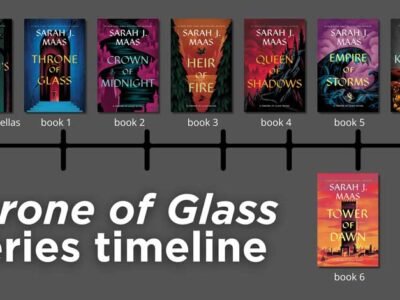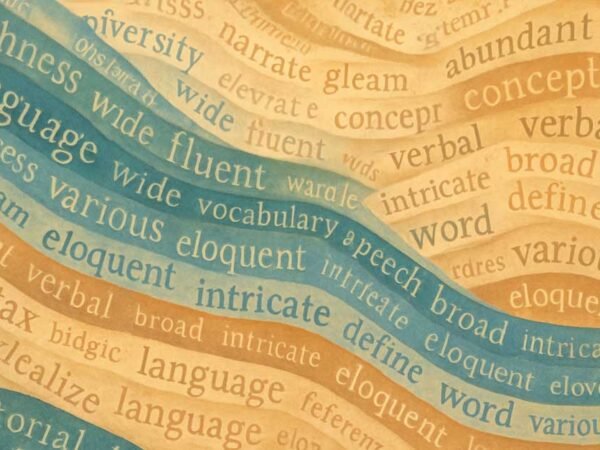Introduction: The Unseen Strength of Precise Language
In the vast tapestry of the English language, few words are as common yet as limiting as “scary.” While it certainly gets the job done, its frequent use can make writing feel flat and dilute the very impact we aim to create. The true magic of language lies in its ability to paint vivid pictures, to convey the subtle shades of emotion and the precise intensity of a feeling. Therefore, venturing beyond this everyday descriptor isn’t just an academic exercise; it’s a crucial step toward crafting more compelling and resonant communication.
Why We Need More Than Just ‘Scary’
Think about it: “scary” acts like a giant umbrella, covering everything from a slight shiver of unease to full-blown, heart-pounding terror. But this broadness often misses the mark when we need to describe a specific kind of fear or apprehension. Imagine trying to capture the subtle chill of a ghost story with the same word you’d use for a monster in a slasher film. That lack of precision can leave your audience feeling a bit detached, unable to fully grasp the emotional landscape you’re trying to convey. By embracing a richer vocabulary, writers and speakers can conjure more striking imagery and elicit a deeper, more authentic response from those they’re communicating with.
The Fear Spectrum: A Guide to ‘Scary’ Synonyms
To truly master the art of describing fear, it’s helpful to see its synonyms not as simple replacements, but as distinct points along a spectrum. Each word carries its own unique shade and intensity, allowing for a more deliberate and powerful choice, perfectly tailored to the moment.
Mild Unease: When Fear Whispers
At the gentler end of this spectrum, we find words that hint at discomfort or a subtle sense of foreboding, rather than outright fright. These are ideal for situations where the threat isn’t immediate or overwhelming, but rather a creeping sensation that something isn’t quite right. Consider terms like unsettling, eerie, creepy, and disquieting. An unsettling silence, an eerie glow from an old window, or a creepy shadow stretching across a room can all create a sense of mild apprehension without needing to escalate to intense fear.
Growing Dread: The Build-Up of Anxiety
As the intensity of fear begins to climb, so too does our need for more potent vocabulary. This category includes words that convey a mounting sense of anxiety, a feeling that something unpleasant or dangerous is drawing near. Frightening, alarming, disturbing, and ominous are excellent choices here. A frightening discovery might lead to an alarming realization, while a disturbing trend could be an ominous sign of future troubles. These words suggest a progression, hinting at what might still be to come.
Intense Terror: When Fear Takes Over
When fear reaches its absolute peak, demanding words that communicate profound horror and overwhelming dread, a different set of synonyms comes into play. These are the terms that describe an all-consuming, often paralyzing, emotional response. Terrifying, horrifying, petrifying, and dreadful are among the most powerful. A terrifying ordeal, a horrifying sight, or a petrifying scream all convey an extreme level of fear that leaves a lasting, visceral impression. “Dreadful,” while similar, often carries an additional connotation of impending doom or severe unpleasantness.
Supernatural and Eerie: The Fear of the Unknown
Some fears spring from the mysterious, the supernatural, or the inexplicably strange. For these specific contexts, words that evoke mystery and the uncanny are most fitting. Spooky, ghostly, haunting, and macabre are particularly effective. A spooky old house, a ghostly apparition, a haunting melody that lingers in the air, or a macabre tale of forgotten rituals all tap into a primal fear of what lies beyond our everyday understanding, adding a layer of chilling intrigue.
Choosing Wisely: Context and Your Message
The secret to effectively using these synonyms lies in truly understanding your context and the impact you want to make. What’s your subject matter? Are you writing a psychological thriller, a lighthearted campfire ghost story, or a serious news report? Your audience also plays a huge role; formal writing might call for more sophisticated terms, while a casual chat allows for more everyday expressions. Most importantly, the specific emotion you wish to stir—be it a gentle shiver of unease or a sudden gasp of terror—should always guide your choice. A single, well-chosen synonym can elevate a simple description into a truly vivid and unforgettable experience for your reader.
Avoiding Common Traps
While expanding your vocabulary is undoubtedly a good thing, it’s just as important to steer clear of common pitfalls. One frequent mistake is picking a synonym just for the sake of variety, without really thinking about its precise meaning or emotional weight. This can lead to awkward sentences or accidentally conveying the wrong message. Another trap is overusing those intense, powerful words; doing so can actually desensitize your reader, making those moments of true terror less impactful when they finally arrive. Always take a moment to consult a thesaurus and dictionary to confirm a word’s exact meaning and how it’s typically used. And here’s a tip: read your writing aloud. It’s amazing how often you’ll catch unnatural-sounding phrases that way. Aim for authenticity and precision, not just a long list of different words.
Conclusion: Elevating Your Expressive Power
Moving beyond the singular “scary” is more than just finding new words; it’s a journey toward mastering the art of language itself. By grasping the subtle yet significant differences between terms like “unsettling,” “frightening,” “terrifying,” and “eerie,” writers and speakers can dramatically enhance their expressive capabilities. This kind of precision doesn’t just enrich your narrative; it fosters a deeper connection with your audience, painting a more vivid and accurate picture of the emotions you’re trying to convey. So, embrace the full spectrum of fear, choose your words with intention, and watch your writing transform from merely descriptive to truly captivating.













